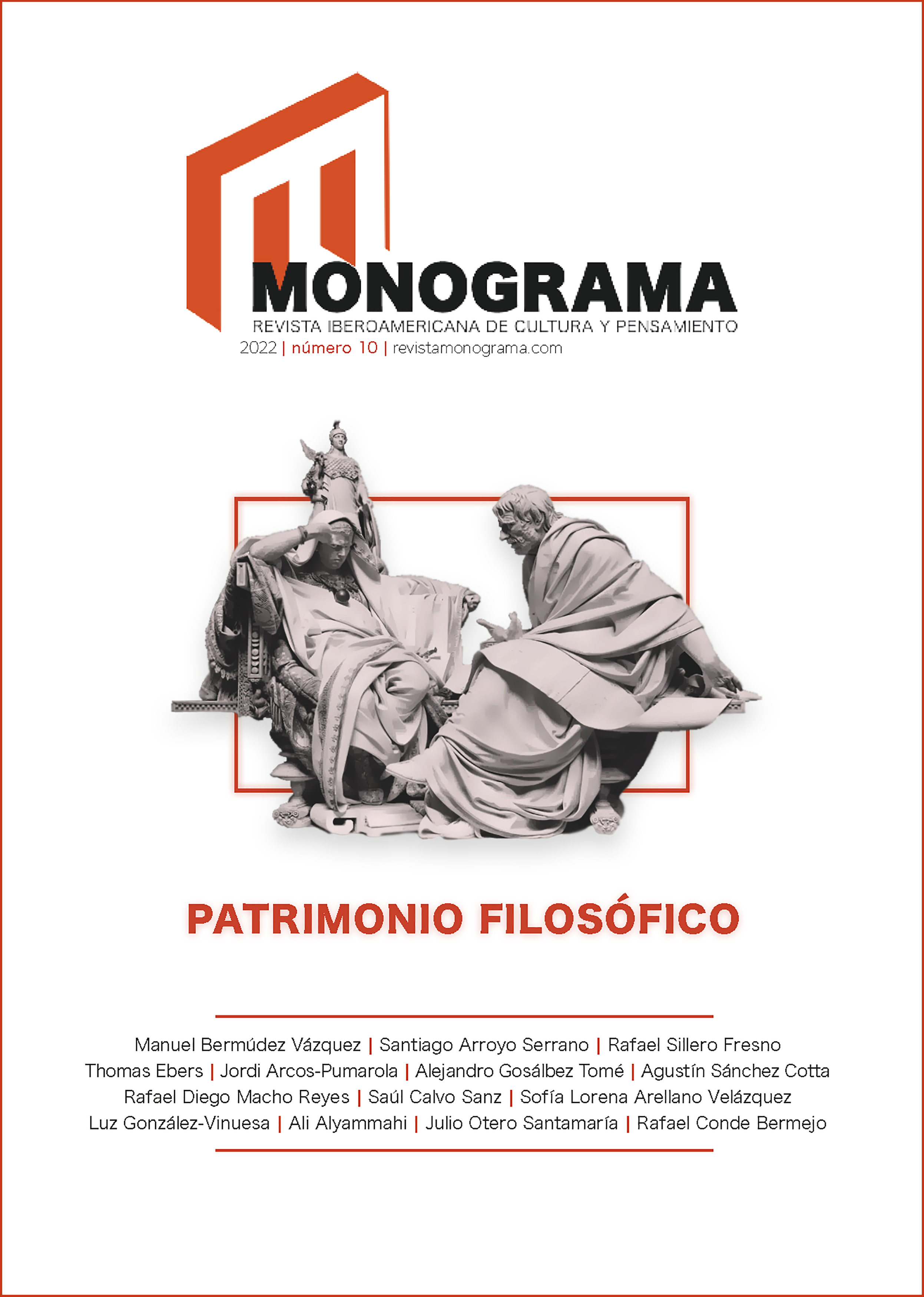Philosophy and Cultural Heritage. An Approach to Philosophy in Museal Contexts
DOI:
https://doi.org/10.36008/monograma.2022.10.0353Keywords:
cultural heritage, ontology, thinking, anthropological philosophyAbstract
The following considerations form a philosophical approach to the meaning of cultural heritage. They are an attempt to answer the question, which position and task philosophy holds or may hold for this heritage. In a first section it is shown that there is no escape from the cultural heritage. For this purpose, it is resorted to the juxtaposition of «to have or to be» by the social psychologist Erich Fromm. Following this distinction, two basic approaches are sketched that precisely fail to do justice to the cultural heritage and to the way of dealing with it that is necessary for one’s own location in the world. These sketches serve as a background against which the significance of philosophy in and for the cultural heritage is discussed, in order to be able to grasp the appropriate approach to philosophy in museal contexts. As a result, museums are proving to be part of the philosophical heritage, at least in terms of possibility.
Downloads
References
Arcos-Pumarola, Jordi (2016). «Turismo cultural y patrimonio filosófico: un estado de la cuestión». International Journal of Scientific Managment Tourism, vol. 2, n.º 3, pp. 41-62.
Assmann, Aleida (2020). Die Wiedererfindung der Nation. Warum wir sie fürchten und warum wir sie brauchen. Múnich: Beck.
Assmann, Jan (2000). Das kulturelle Gedächtnis. Schrift, Erinnerung und politische Identität in frühen Hochkulturen. Múnich: Beck.
Bierwerth, Gesa (2018). «Das kulturelle Erbe, ein junges Konzept». abido. Die Fachzeitschrift für Archiv, Bibliothek und Dokumentation, n.º 2018/1. Disponible en: https://arbido.ch/de/ausgaben-artikel/2018/archive-und-bibliotheken-f%C3%BCr-das-kulturerbe/das-kulturelle-erbe-ein-junges-konzept [consultado el 7 de febrero de 2021].
Bredekamp, Horst (2016). Das Beispiel Palmyra. Köln: Verlag der Buchhandlung Walther König.
Caviezel, Nott (2019). «Wem gehört die Welt. Vom Erbe, Erben und Vererben». En Arbeitsgruppe formation continue NIKE, BAK, ICOMOS, Kulturerbe, ein gemeinsames Gut. Für wen und warum? Le patrimoine culturel, un bien commun. Pour qui et pourquoi? Schriftenreihe zur Kulturgüter-Erhaltung. Basilea: Schwabe Verlag, vol. 6. pp. 16-22.
Daston, Lorraine y Park, Katharine (2002). Wunder und die Ordnung der Natur 1150-1750. Fráncfort del Meno: Eichborn.
Deleuze, Gilles y Guattari Félix (2014). Was ist Philosophie. Fráncfort del Meno: Suhrkamp.
Ebers, Thomas y Melchers, Markus (2006). Praktisches Philosophieren mit Kindern. Konzepte. Methoden, Beispiele. Münster: lit-Verlag.
Ebers, Thomas (2012). «Bleiernes Ich. Anselm Kiefers Arbeit am kulturellen Gedächtnis». En Kunst-und Ausstellungshalle der Bundesrepublik Deutschland, Anselm Kiefer. Am Anfang. Colonia: Wienand Verlag, pp. 120-129.
Ebers, Thomas (2014). «Museen als Denkorte. Ein Plädoyer für “Philosophie im Museum”». Standbein Spielbein, vol. 99, pp. 4-7.
Foucault, Michel (1992). «Andere Räume». En Barck, Karlheinz et al., Aisthesis. Wahrnehmung heute oder Perspektiven einer anderen Ästhetik. Leipzig: Reclam, pp. 34-46.
Fromm, Erich (1976). Haben oder Sein. Die seelischen Grundlagen einer neuen Gesellschaft. Stuttgart: Deutsche Verlagsanstalt.
Fuhrmann, Manfred (2002). Bildung. Europas kulturelle Identität. Stuttgart: Reclam.
Horkheimer, Max y Adorno, Theodor W. (1985). Dialektik der Aufklärung. Philosophische Fragmente. Fráncfort del Meno: Fischer.
Kersting, Wolfgang (2000). Theorien der sozialen Gerechtigkeit. Stuttgart: J. B. Metzler.
Roy, Olivier (2010). Heilige Einfalt. Über die politischen Gefahren entwurzelter Religionen. Múnich: Siedler.
Ricoeur, Paul (2000). Gedächtnis, Geschichte, Vergessen. Paderborn: Wilhelm Fink Verlag.
Sandkühler, Hans Jörg (2012). «Menschenrechte in pluralistischen Gesellschaften. Gegen Kulturrelativismus und Rechtsrelativismus». En Dhouib, Sarhan (ed.), Kultur, Identität und Menschenrechte. Transkulturelle Perspektiven. Weilerswist: Velbrück, pp. 41-56.
Schorlemer, Sabine von (2016). Kulturgutzerstörung. Baden-Baden: Nomos.
Simmel, Georg (1900/1989). Philosophie des Geldes. Fráncfort del Meno: Suhrkamp.
Sutter, Alex (1998). «Gibt es ein Menschenrecht auf kulturelle Identität?». En Prodolliet Simone (ed.), Blickwechsel. Die interkulturelle Schweiz an der Schwelle zum 21. Jahrhundert. Lucerna: Caritas Verlag, pp. 50-61.
Walz, Markus (2016). «Grundprobleme der Museumstypologie». En Walz, Markus (ed.), Handbuch Museum. Geschichte, Aufgaben, Perspektiven. Stuttgart: J.B. Metzler, pp. 78-81.
Weschenfelder, Klaus y Zacharias, Wolfgang (eds.) (1992). Handbuch Museumspädagogik. Orientierungen und Methoden für die Praxis. Düsseldorf: Schwann.
Downloads
Published
How to Cite
Issue
Section
License
Copyright (c) 2022 Monograma. Revista Iberoamericana de Cultura y Pensamiento

This work is licensed under a Creative Commons Attribution-NonCommercial-NoDerivatives 4.0 International License.
Esta obra está bajo una licencia de Creative Commons Reconocimiento-NoComercial-SinObraDerivada 4.0 Internacional






